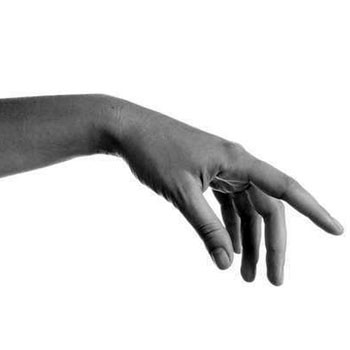Definition
Saturday Night Palsy or radial nerve compression is a condition affecting the radial nerve due to prolonged pressure on the nerve. This excessive or prolonged pressure on the radial nerve causes movement and sensory disturbances in the nerve. This condition occurs more frequently in men and can affect individuals of any age.
The term "Saturday Night Palsy" is believed to originate from people partying and drinking alcohol until the early hours of Saturday night and then falling asleep. During sleep after partying and drinking alcohol, people often sleep deeply in positions where the arm is pressed by the head or another object, causing prolonged pressure on the arm's nerve and resulting in nerve disturbances.
The term "Saturday Night" is also associated with one of the gods in Greek mythology, the god Saturn, known for partying and drinking alcohol. Besides Saturday Night Palsy, another term referring to radial nerve disorders is "Honeymoon Palsy."
Causes
The cause of Saturday Night Palsy is prolonged pressure on the nerve. This pressure can result from an inappropriate body position for an extended period, whether during sleep or not. It can also be caused by the growth of tumors and cysts in the arm and the use of certain items that can press on the arm's nerve, such as tight wristwatches or blood pressure cuffs.
Fractures, joint dislocations, and cuts on the arm can also injure the radial nerve. Although rare, infections and inflammation can also cause Saturday Night Palsy.
Risk factor
Risk factors for Saturday Night Palsy include:
- Gender: Males are more susceptible to Saturday Night Palsy.
- Occupational Risk: Jobs requiring repetitive movements and difficult body postures or non-ergonomic positions can increase the risk of Saturday Night Palsy.
- Other Injuries: Fractures, joint dislocations, and injuries requiring the use of crutches can increase the risk of Saturday Night Palsy.
Symptoms
Symptoms of Saturday Night Palsy include:
- Numbness in the upper arm down to the fingers.
- Difficulty extending the wrist and fingers.
- Difficulty gripping objects.
- Weakness in controlling the upper arm muscles.
- Wrist drop – a sensation where the wrist feels "dropped," and the patient cannot control or lift the wrist.
Diagnosis
Doctors will conduct interviews, physical examinations, and additional tests to establish a diagnosis. After the interview and general physical examination, a neurological examination is performed. This includes examining the facial nerves, motor function, and sensory function, focusing on the arm.
For additional examinations, doctors may conduct blood tests to ensure no other causes, such as blood sugar issues, thyroid hormone levels, vitamin levels, and kidney function, are contributing to the nerve complaints. Doctors may also recommend radiological exams like X-rays, CT scans, or MRIs to rule out abnormalities in the bones or joints.
Doctors may perform electromyography (EMG) to measure electrical activity in the muscles and detect any nerve damage. A nerve conduction study may be conducted to assess how well the nerves transmit signals from the spinal cord to the muscles.
Management
The goal of treatment is to relieve symptoms and restore movement function in the wrist and arm. Treatment depends on the cause. Generally, treatment for Saturday Night Palsy is divided into non-surgical and surgical management. In most cases, symptoms can resolve on their own without surgery.
Non-Surgical Management
Non-surgical treatments include:
- Pain relievers such as acetaminophen.
- Anticonvulsant medications.
- Steroid injections.
- Anesthetic patches or creams.
- Splints to help immobilize and reduce muscle and nerve activity.
- Physical therapy to strengthen and restore muscle strength.
- Massage and acupuncture.
- Nerve stimulation therapy or Transcutaneous Electrical Nerve Stimulation (TENS).
Surgical Management
Surgical treatment may be necessary if a specific cause, such as a tumor, cyst, or fracture, is identified. The goal of surgery is to repair the nerve damage. After surgery, patients must use a brace or splint to rest the affected nerve area. Doctors may also work with physical therapists or rehabilitation doctors to restore muscle strength and function. Surgery is performed by a neurosurgeon.
Complications
In most cases of Saturday Night Palsy can fully recover. However, complications can include:
- Partial or permanent loss of sensation.
- Partial or permanent paralysis of the wrist.
- Permanent arm deformity.
- Recurrent complaints of Saturday Night Palsy.
Prevention
Most cases of Saturday Night Palsy cannot be prevented, but improving ergonomic posture at work and using supportive pillows while sleeping can help. Additionally, avoid behaviors that can damage the nerves, such as repetitive movements and positions that press on the arm during prolonged sitting or sleeping. If your job requires repetitive movements, take breaks and alternate activities.
When to see a doctor?
You should see a doctor if you experience numbness and difficulty moving your upper arm. You can first visit a general practitioner, who may refer you to a neurologist if the complaints do not improve and require further treatment. Saturday Night Palsy can be cured. The sooner it is treated, the higher the chance of recovery. Recovery can take three months in mild cases, while severe cases requiring surgery may take up to eight months.
Looking for more information about other diseases? Click here!
- dr. Yuliana Inosensia
Ansari FH., Jurgens AL., (2022). Saturday Night Palsy. Retrieved 12 September 2022, from https://www.ncbi.nlm.nih.gov/books/NBK557520/
Mayo Clinic - The Origin of Saturday Night Palsy. (2002). Retrieved 12 September 2022, from https://mayoclinic.pure.elsevier.com/en/publications/the-origin-of-saturday-night-palsy
Medscape - Radial Mononeuropathy. (2021). Retrieved 12 September 2022, from https://emedicine.medscape.com/article/1141674-overview







